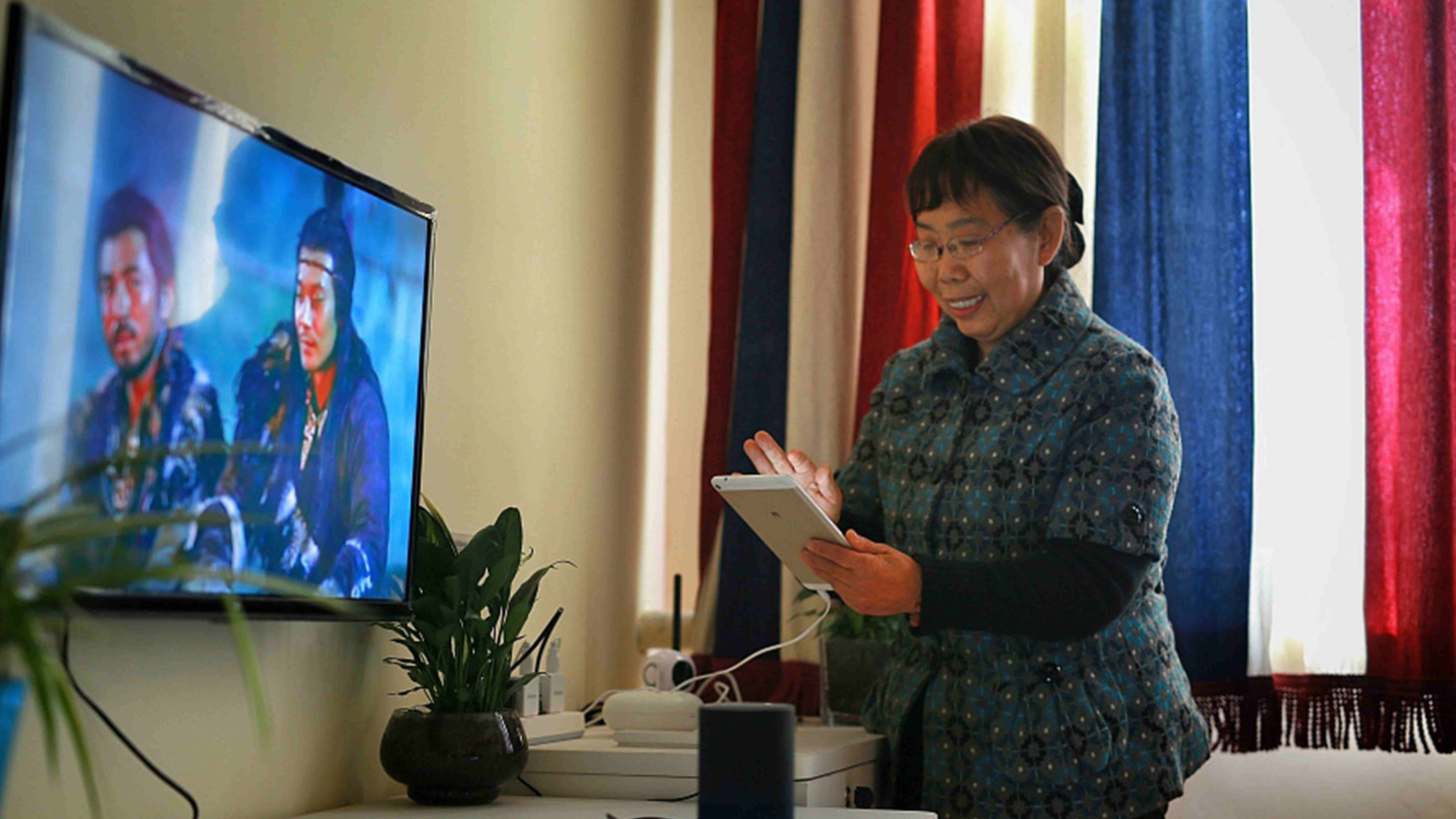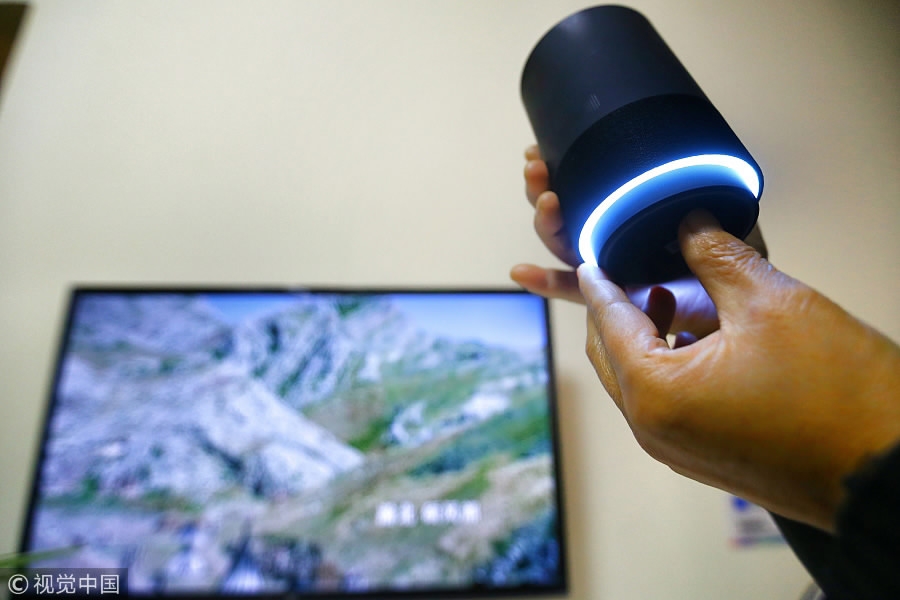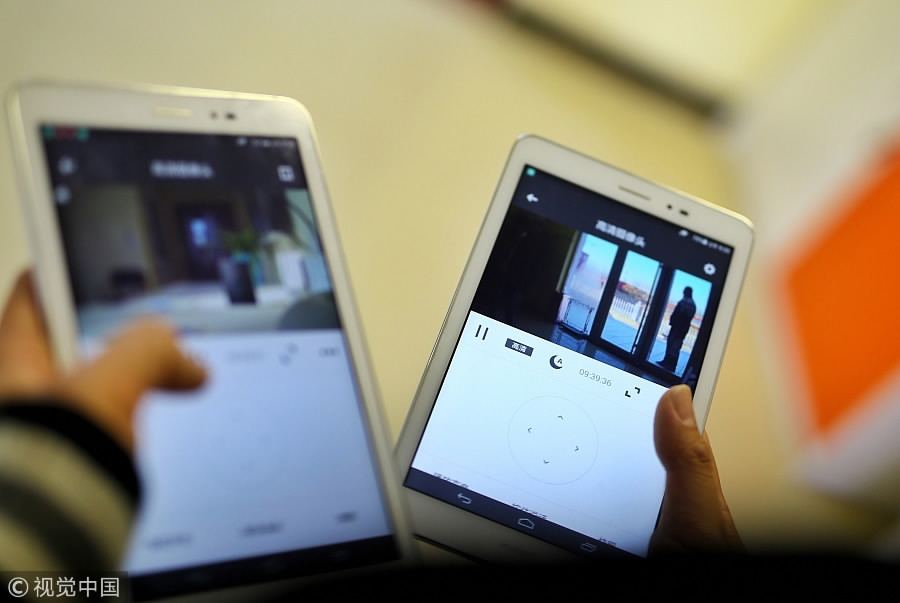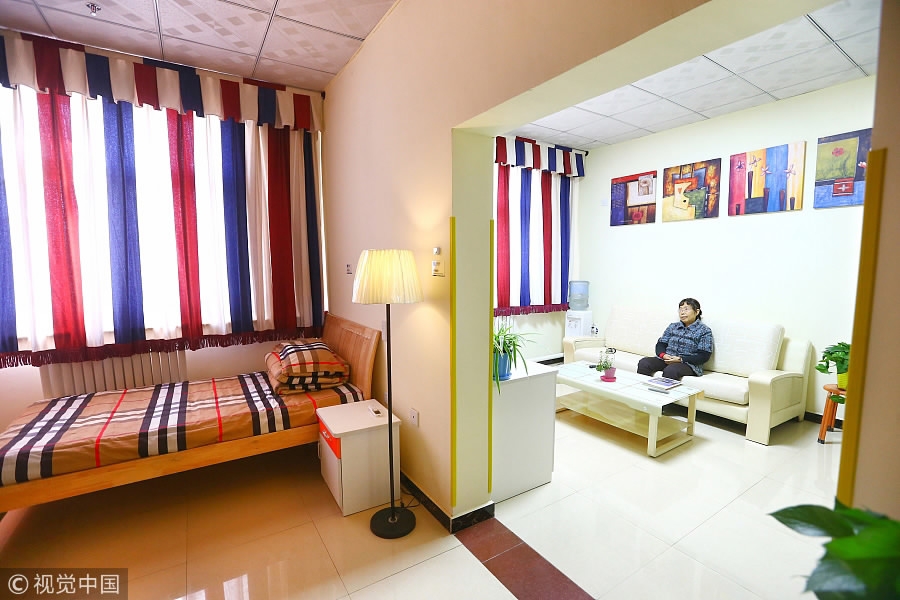
AI
17:37, 27-Jan-2018
How much can elderly stand to gain from AI?
By Wei Lynn Tang

What comes to your mind when you think of artificial intelligence (AI)?
Automated things, complex algorithms, huge investments, super-advanced technologies – all to make our lives more efficient. The applications appear to cater mostly to the younger generation, at least for now.
Little do we know, the elderly may stand to gain and benefit the most from AI.
Wang Jinhua, a 90-year-old resident at Puleyuan nursing home – the first smart nursing home pilot project launched by Alibaba Group – said she likes what she is experiencing so far.
“I can switch on the heater, air conditioner, purifier and TV with just a voice command (via a voice assistant speaker such as Tmall Genie), without moving my body,” she said.

The smart nursing home pilot project, launched by Alibaba in Beijing on Dec 26, 2017, is equipped with voice-assistant smart speakers. /VCG Photo
The smart nursing home pilot project, launched by Alibaba in Beijing on Dec 26, 2017, is equipped with voice-assistant smart speakers. /VCG Photo
Asked as to why is she still willing to be responsive to something as new as AI at her age, Wang laughed and said, “I got influenced by my grandson. He wants me to enjoy these things... How can I not be willing?”
A learning process
However, not all elderly may be patient or able enough to adapt to the new technology. But therein lies the beauty, as the process of using AI is a process of learning, according to Yan Shuai, head of the nursing home.
He said it might not be convenient for some people to communicate with the equipment initially, but after a while, they will get into the habit of using AI.
“And so I feel this is suitable for the elderly because it is hard to change their ways and mindset at that age – they need to be exposed to another avenue to learn, to adapt. In turn, the elderly can also keep their minds active,” Yan said.
It may be difficult to run an operating system like iPad or smartphones, he added, saying it may eventually be good to use voice command to solve problems.
Privacy matters

The Puleyuan nursing home is equipped with cameras to monitor residents activities. /VCG Photo
The Puleyuan nursing home is equipped with cameras to monitor residents activities. /VCG Photo
The smart room in the Puleyuan nursing home, in Beijing’s Southwestern Suburb, is equipped with a camera to monitor Wang’s activities.
“Isn't it good for them to see me? In the previous nursing home, once I felt dizzy and fell. The staff didn't even know until much later,” she said.
With just a click of the button next to her bed, Wang can reach out to her grandson and communicate with him.
Also, the sensors on the smart room’s door can also capture movements in and out of the room.
The deal with Alibaba
While Alibaba launched this smart nursing home pilot project in collaboration with LifeSmart, an Internet-of-Things company, Puleyuan also uses other products from other brands as Xiaomi to give his residents a wholesome experience.
According to Yan, Alibaba provides the nursing home with free equipment; while Yan, in turn, offers the group with statistics and data on elderly adapting to these technologies. He has been in this industry for 12 years.
Yan said early estimates indicate he can save one-third of personnel costs during the night shift with the application of AI.
With only two smart rooms at the moment, he hopes to gradually expand this throughout his 180-resident nursing home shortly.
What’s next?

In a suite with a small living room at the Puleyuan Nursing Home in Beijing, air conditioning, TV, curtains and lightings are all controlled by smart speakers. /VCG Photo
In a suite with a small living room at the Puleyuan Nursing Home in Beijing, air conditioning, TV, curtains and lightings are all controlled by smart speakers. /VCG Photo
The smart rooms are fitted with motion sensor lights.
David Liu, Vice President of Sales with LifeSmart, said the company’s next step is to build further motion sensor devices for smart homes, to ensure the elderly continue to be responsive to its products.
“We call this AI builder, to build smart templates of your home; where it can learn your patterns and living habits, to promote itself to be more fit to serve you,” said Liu.
Yan said he envisions the day when elderly can have their conditions (such as diabetes, high blood pressure) assessed at home, without having to go to the hospital.
“I also hope AI can enable the elderly to buy things online. For example, via voice command to buy milk, and it will reveal which one is the cheapest and best suited for them,” Yan added.
In a country where one-third of the population is expected to be over 60 by 2050, authorities are looking for ways to reduce the costs of elderly care while maintaining their quality of life.
Although AI applications for the elderly are still at early ages, this may just be the beginning.
And as Yan called it, “when an elderly is exposed to something new, he or she should not be considered as old.”
(Cover Photo via VCG)
30km

SITEMAP
Copyright © 2018 CGTN. Beijing ICP prepared NO.16065310-3
Copyright © 2018 CGTN. Beijing ICP prepared NO.16065310-3